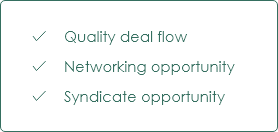Does history repeat itself? In a world of data and facts, we can no longer say no and close our eyes. Economical cycles last for an average of 5.5 years in the US, with the lowest duration for an economic cycle being 18 months, and the longest duration being around 10 years; our article will talk about the burst that came about this longest 10-year economic cycle: the dot com bubble of 2000.
What Happened?
The Power of Psychology in Trading
One of the fundamental reasons the dot-com bubble happened was due to the fact that human beings are creatures of influence; when people saw people moving to buy stocks of highly overvalued tech companies on the stock market, they jumped to follow in fear of missing out of a passing opportunity, neglecting any financial ratios or cash flow in these companies. This psychological effect led to the NASDAQ skyrocketing from 1,000 points in 1995 to 5,000 in 2000 then eventually crashing back down to 1,335 in 2002.
Now
Today, we see bankers seeking a $120 billion valuation for Uber’s IPO, then eventually settling at an IPO market capitalization of $82.4 billion; we see Facebook going public in 2012 at an astonishing $104 billion valuation and settling today at a $528 billion market capitalization, and Snapchat going public in 2017 at a $23.8 billion valuation and settling today at $15 billion. The valuations we are witnessing today differ from the dot-com bubble of 2000 in the fact that modern-day tech startups are spending more time in private rounds, from angels investors to venture capitalists for an average duration of 10 years as opposed to 3 years in the 2000 tech bubble; however, after all those years building value, the fact remains that the majority is still fighting for profitability even after an average of 10 years.
So, we know that history repeats itself; we are left with having to figure out when and how it will repeat itself. Are we witnessing a bubble in the private market via angel investments and venture capitals, or are we entering into another bubble through the new tech IPOs such as Uber, Lyft, Pinterest, and others scheduled to IPO this year?




